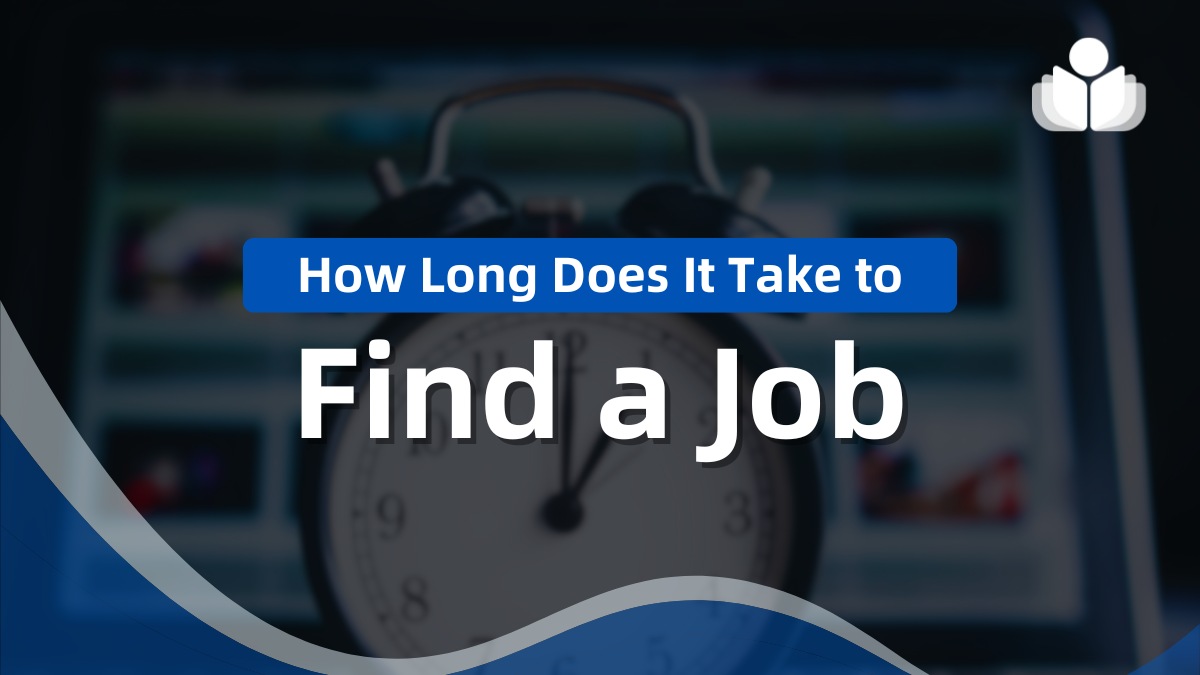Job searching is often stressful and uncertain, with many wondering how long it will take to find the right opportunity. The timeline can vary significantly based on industry, experience level, and the economic climate.
This article provides realistic expectations on the typical job search duration, outlines factors influencing the process, and offers strategies to stay productive and focused. By breaking down the job search phases and their timelines, job seekers can better manage expectations and maintain momentum.
Average Time to Find a Job
Statistical Overview of Job Search Duration
On average, the job search process can take anywhere from several weeks to several months, depending on various factors. For recent graduates, the average time to find a job is typically around 3 to 6 months, while mid-career professionals may find a position in 2 to 4 months.
For executives or those seeking senior roles, the process may take even longer, often extending beyond 6 months due to the level of competition and the complexity of such roles.
Industry-Specific Timelines
Job search timelines can vary significantly by industry. For instance, tech roles, often in high demand, may offer quicker placements, while healthcare jobs can also be relatively quick due to the growing demand in this sector. However, fields like education or non-profits may have more extended hiring cycles due to budget constraints or the academic calendar.
Job Market and Economic Factors
The state of the economy and job market can significantly affect how long it takes to find a job. During economic downturns or times of high unemployment, the job search process typically takes longer due to increased competition. Conversely, jobs may be filled more quickly in a booming economy with a lower unemployment rate as companies expand and create new opportunities.
Factors That Influence How Long It Takes to Find a Job
Experience Level
Your experience level significantly affects the length of your job search. Entry-level candidates may face a competitive market, but those with highly sought-after skills or relevant internships could secure a position faster.
While seasoned professionals’ experience is valuable, the search can take longer due to the specificity of the roles they qualify for. Career changers may also experience longer timelines as they build new networks and show their fit for a new industry.
Industry and Job Role
The type of job you’re searching for can significantly impact the timeline. High-demand fields like tech or healthcare typically have faster hiring processes, while niche roles in specialized industries may take more time to find the right fit.
Additionally, the job type, whether full-time, part-time, remote, or contract, affects the duration. Full-time roles with benefits often require more thorough vetting, while contract positions might have shorter hiring processes.
Geographic Location
The region in which you’re job hunting also matters. Urban areas often offer more job opportunities, making the process faster, while rural areas or smaller markets may have fewer positions available. For those looking internationally, visa processes and relocation logistics can significantly extend the timeline.
Personal Network and Connections
Networking is a critical factor in speeding up the job search. Having professional solid connections or tapping into a personal network can significantly reduce the time to find a job, as many roles are filled through referrals. Cold outreach and attending industry events can also expand your network, opening up more opportunities.
Job Search Strategies
How you approach your job search also influences the timeline. Online job applications may yield slower results due to high competition, while networking and cold outreach often lead to faster opportunities. Tailoring applications to each job can also improve response rates and shorten the job search process.
Phases of the Job Search Process
Phase 1: Preparation (1-2 Weeks)
The first phase involves preparing your materials and setting the foundation for your job search. This includes updating your resume, LinkedIn profile, and portfolio and gathering references.
During this time, job seekers should also research companies, industries, and job roles that align with their career goals. Proper preparation ensures that you present yourself in the best possible light when applying.
Phase 2: Job Search and Application (4-8 Weeks)
Once you’re prepared, the job search and application phase begins. During this stage, you’ll actively search for job openings, tailor your resume to each application, and submit them.
This process can take several weeks, depending on the industry and the volume of jobs available. On average, job seekers apply to multiple jobs per week, and employers’ response time can vary from a few days to several weeks.
Phase 3: Interviews (2-6 Weeks)
Once applications yield results, the interview phase begins. Interview invitations can be received anywhere from a week to several weeks after applying. Depending on the company’s process, candidates may go through multiple interview rounds, assessments, or tests, which can add more time. Scheduling interviews, particularly with busy teams, can also extend this phase.
Phase 4: Decision-Making and Job Offers (1-4 Weeks)
After final interviews, the decision-making phase begins, which can also take some time. Employers may need to consult internally before deciding, and candidates may need to wait for job offers. Once an offer is made, negotiations and finalizing employment agreements can add another few days or weeks to the timeline before officially securing the job.
How to Speed Up the Job Search Process
Networking and Referrals
Leveraging your professional network can accelerate your job search. Referrals from industry contacts often move your application to the top of the pile, giving you a competitive advantage. Building relationships with peers, former colleagues, or mentors can open doors to opportunities that aren’t publicly posted.
Customizing Job Applications
Tailoring your resume and cover letter for each job posting is essential to stand out in a crowded applicant pool. Highlighting specific skills and experiences that match the job description increases your chances of getting noticed by recruiters and hiring managers.
LinkedIn and Social Media
LinkedIn is a powerful tool for networking and applying for jobs. Follow companies you’re interested in, engage with their posts, and connect with professionals in your field. Sharing relevant industry content and commenting on posts can help make you more visible to recruiters.
Following Up on Applications
Following up on submitted applications or interviews is a proactive way to remind recruiters of your interest. A polite follow-up email can show your enthusiasm and keep you on the radar for potential opportunities.
Working With Recruiters
Recruiters and staffing agencies can speed up your job search by connecting you with roles that match your qualifications. They often have access to job openings that aren’t publicly listed and can fast-track your application through the hiring process.
What to Do While You Wait
Continuing Professional Development
While waiting for job offers, use the time to enhance your skill set. Consider enrolling in online courses, attending webinars, or pursuing certifications that apply to your field. This boosts your employability and shows potential employers your commitment to growth.
Expanding Your Network
Take advantage of networking opportunities, both in-person and online. Attend industry events, join professional groups, or connect with industry leaders on LinkedIn. Expanding your network can lead to job referrals and new opportunities.
Maintaining Productivity
Stay productive by volunteering, freelancing, or taking on temporary work. These activities help keep your skills sharp, fill gaps in your resume, and show to employers that you’ve stayed active during your job search.
Staying Positive and Motivated
Job searching can be stressful, so it’s important to stay positive. Set small goals for yourself, take breaks when needed, and focus on maintaining a balanced outlook. Surround yourself with a supportive network to stay motivated throughout the process.
Why It Sometimes Takes Longer Than Expected
Hiring Delays
Internal company delays, such as changes in hiring priorities, budget adjustments, or organizational restructuring, can slow down the hiring process. These factors are often beyond the control of both the job seeker and the recruiter.
Competition
For highly sought-after positions, employers may receive hundreds of applications. This high level of competition can delay the response time as hiring managers sift through candidates to find the right fit.
Employer Hiring Processes
Some companies have lengthy hiring processes involving multiple interview stages, assessments, and team approvals. While these processes ensure they find the best fit, they can extend the job search timeline.
Misalignment Between Job Requirements and Applicant Skills
If there’s a gap between your qualifications and the job requirements, you may experience fewer callbacks. This can prolong the search, making it important to tailor your applications and identify roles that closely match your skills.
Conclusion
Finding a job can take weeks to months, depending on factors like industry, experience, and economic conditions. The process includes preparation, applying, interviewing, and waiting for offers, with delays often due to competition and company timelines.
Staying proactive, patient, and focused will help you succeed. Every step, whether improving skills, networking, or refining your resume, moves you closer to your next opportunity.
Set clear goals, use multiple strategies, and view the job search as a growth opportunity. Staying committed to each effort will bring you closer to finding the right job.
 Sections of this topic
Sections of this topic
















